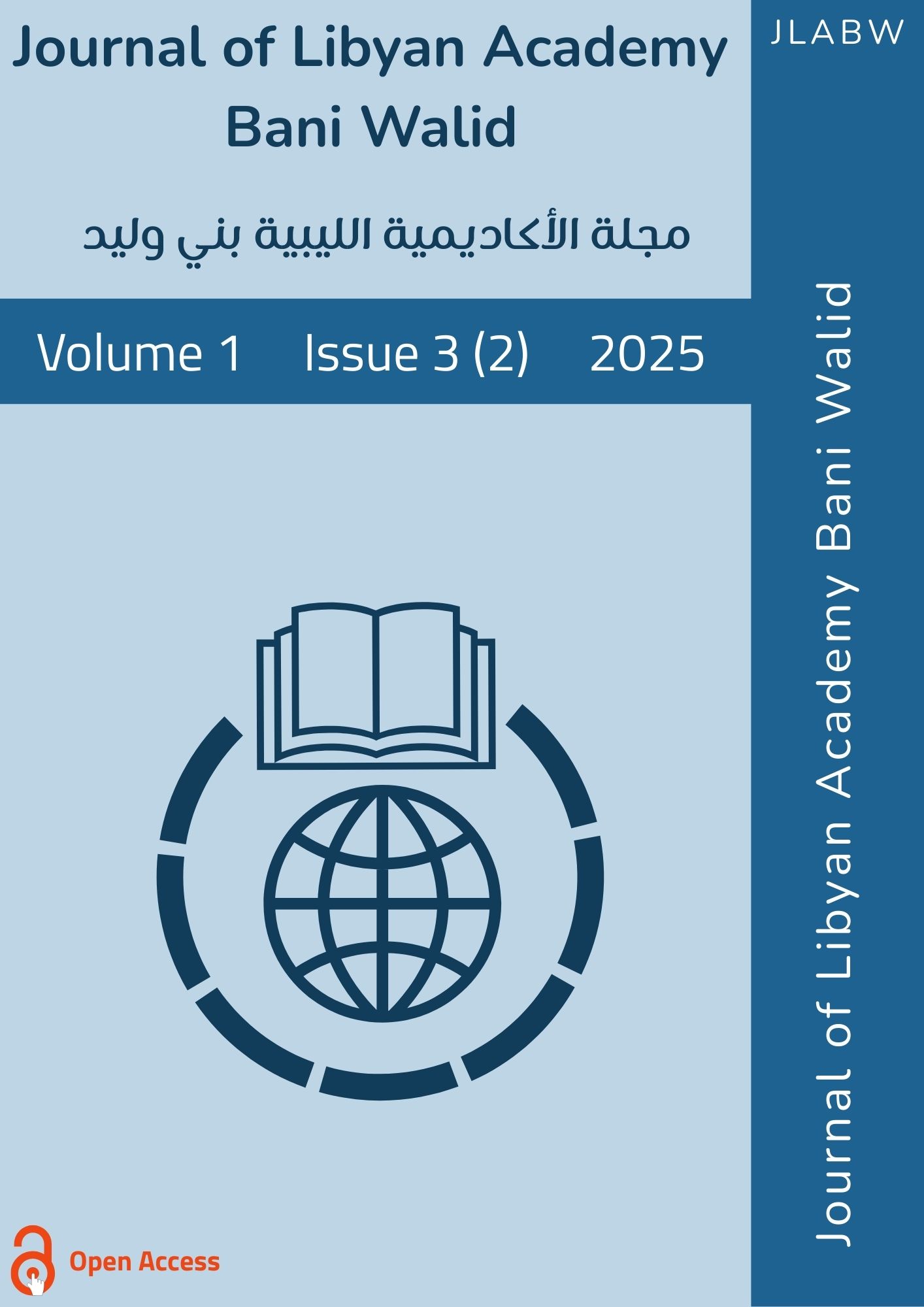Hybrid Metaheuristic-Neural Algorithms for Maximum Power Point Tracking in IoT-Monitored Solar Arrays Under Partial Shading and Spectral Irradiance Variability
DOI:
https://doi.org/10.61952/jlabw.v1i3.167Keywords:
Maximum Power Point Tracking, Partial Shading, Spectral Irradiance, Hybrid Metaheuristic, Neural Network, IoT Monitoring, Photovoltaic Systems, Grey Wolf Optimizer, GRU NetworkAbstract
The operational efficiency of photovoltaic (PV) systems under non-uniform irradiance conditions remains a critical challenge in renewable energy deployment. Conventional maximum power point tracking (MPPT) algorithms frequently converge to local maxima under partial shading and spectral irradiance fluctuations, resulting in substantial energy yield losses. This study introduces a novel hybrid architecture integrating metaheuristic optimization with adaptive neural networks, deployed within an Internet of Things (IoT)-enabled real-time monitoring framework. The proposed algorithm termed H-MNMPPT (Hybrid Metaheuristic-Neural MPPT) synergistically combines the exploratory robustness of the Enhanced Grey Wolf Optimizer (EGWO) with the predictive adaptability of a gated recurrent unit (GRU)-based neural estimator. Experimental validation was conducted on a 2.4 kW rooftop PV array instrumented with distributed IoT sensors capturing irradiance, temperature, spectral distribution, and module-level current-voltage characteristics. Under dynamically shifting partial shading patterns and spectrally variant irradiance (AM 1.0 to AM 2.5), H-MNMPPT demonstrated a 98.7% tracking efficiency, outperforming Perturb and Observe (P&O) by 21.3%, PSO-based MPPT by 14.1%, and conventional ANN-MPPT by 9.8%. Furthermore, convergence time was reduced by 63% compared to standard GWO, and the system maintained sub-second response latency under IoT-triggered environmental transitions. This architecture establishes a new benchmark for intelligent, resilient MPPT in next-generation smart solar farms.
References
Das, N., & Kulkarni, N. (2025). Enhancing coordinated target tracking: innovative particle filters with meta-heuristic integration and advanced model validation. Soft Computing, 1-32.
Demirci, A., Dagal, I., Tercan, S. M., Gundogdu, H., Terkes, M., & Cali, U. (2025). Enhanced ANN-Based MPPT for Photovoltaic Systems: Integrating Metaheuristic and Analytical Algorithms for Optimal Performance Under Partial Shading. IEEE Access.
Lai, Y., Chen, Z., & Mao, Y. (2025). Research on the application of a model combining improved optimization algorithms and neural networks in trajectory tracking of robotic arms. Alexandria Engineering Journal, 127, 336-356.
Mehta, M., Patel, T., Patel, U., & Bhatt, K. (2025, June). Enhanced MPPT Performance in Solar PV System Using ANN and FOPI Control Optimized by Meta-Heuristic Algorithm. In 2025 IEEE International Conference on Automatic Control and Intelligent Systems (I2CACIS) (Vol. 1, pp. 455-460). IEEE.
Hussain, M. T., Shahabuddin, M., Huang, L. Y., Sarwar, A., Asim, M., Ahmad, S., ... & Tariq, M. (2025). Enhanced mpp tracking in partial shading conditions for solar pv systems: A metaheuristic approach utilizing projectile search algorithm. IEEE Access.
Mishra, D., & Mandal, S. (2025). Sensorless control of DC-DC buck converter using metaheuristic algorithm. AIMS Electronics and Electrical Engineering, 9(3), 339-358.
Ben Dalla, L., Medeni, T. M., Zbeida, S. Z., & Medeni, İ. M. (2024). Unveiling the Evolutionary Journey based on Tracing the Historical Relationship between Artificial Neural Networks and Deep Learning. The International Journal of Engineering & Information Technology (IJEIT), 12(1), 104-110.
Shang, Y., Zheng, M., Li, J., & Zheng, X. (2025). An effective feature selection approach based on hybrid Grey Wolf Optimizer and Genetic Algorithm for hyperspectral image. Scientific Reports, 15(1), 1968.
Bouksaim, M., Mekhfioui, M., & Srifi, M. N. (2025, September). A Comprehensive Decade-Long Review of Advanced MPPT Algorithms for Enhanced Photovoltaic Efficiency. In Solar (Vol. 5, No. 3, p. 44). MDPI.
Wu, Z., Zhou, J., & Yu, X. (2025). Forecast Natural Gas Price by an Extreme Learning Machine Framework Based on Multi-Strategy Grey Wolf Optimizer and Signal Decomposition. Sustainability, 17(12), 5249.
Jabbar, R. I., Mekhilef, S., Mubin, M., & Wahyudie, A. (2025). A High-Performance Hybrid MPPT Method for Rapid Tracking and Steady Power Operation Under Varying Weather Conditions and Load Changes in Photovoltaic Systems. IEEE Access.
Nguyen, D. T., Nguyen, T. P., & Cho, M. Y. (2025). Cloud-based AIoT intelligent infrastructure for firefighting pump fault diagnosis-based hybrid CNN-GRU deep learning technique. The Journal of Supercomputing, 81(3), 462.
Kim, K., Park, K., Yoon, K., Moon, H., Pyeon, H., Kim, J., & Han, S. (2025). A light-weight electrochemical impedance spectroscopy-based SOH estimation method for lithium-ion batteries using the distribution of relaxation times with Grad-CAM analysis. Journal of Power Sources, 631, 236169.
Karimi, H., Siadatan, A., & Rezaei-Zare, A. (2025). A Hybrid P&O-Fuzzy-Based Maximum Power Point Tracking (MPPT) Algorithm for Photovoltaic Systems under Partial Shading Conditions. IEEE Access.
Alombah, N. H., Harrison, A., Mbasso, W. F., Belghiti, H., Fotsin, H. B., Jangir, P., ... & Elbarbary, Z. M. S. (2025). Multiple-to-single maximum power point tracking for empowering conventional MPPT algorithms under partial shading conditions. Scientific Reports, 15(1), 14540.
Yusuf, S. U., Islam, M., & Azad, M. J. I. (2025). An Efficient Metaheuristic Optimization Algorithm for Optimal Power Extraction from PV Systems under Various Weather and Load-Changing Conditions. Array, 100492.
Gao, J., Lei, Z., Zheng, T., Guo, L., Wang, Y., & Gao, S. (2025). Particle Swarm Optimization with Problem-Aware Hyperparameter Design for Feature Selection in High Dimensions. Information Sciences, 122638.
Londe, M. A., Pessoa, L. S., Andrade, C. E., & Resende, M. G. (2025). Biased random-key genetic algorithms: A review. European Journal of Operational Research, 321(1), 1-22.
El Ouardi, R., Bouali, A., Dahmani, S., Errahmani, A., & Ouali, T. (2025). Exploring f (Q) gravity through model-independent reconstruction with genetic algorithms. Physics Letters B, 863, 139374.
Ortiz-Munoz, D., Luviano-Cruz, D., Perez-Dominguez, L. A., Rodriguez-Ramirez, A. G., & Garcia-Luna, F. (2025). Hybrid fuzzy–DDPG approach for efficient MPPT in partially shaded photovoltaic panels. Applied Sciences, 15(9), 4869.
Bakare, M. S., Abdulkarim, A., Shuaibu, A. N., & Muhamad, M. M. (2025). Enhancing solar power efficiency with hybrid GEP ANFIS MPPT under dynamic weather conditions. Scientific reports, 15(1), 5890.
Howlader, A. S. (2025). MACHINE LEARNING APPLICATIONS IN RENEWABLE ENERGY: PREDICTIVE ANALYTICS FOR SOLAR CELL PERFORMANCE OPTIMIZATION AND ENERGY YIELD FORECASTING. American Journal of Scholarly Research and Innovation, 4(01), 392-427.
Pravina, R., Uthayakumar, H., & Sivasamy, A. (2023). Hybrid approach based on response surface methodology and artificial neural networks coupled with genetic algorithm (RSM-GA-ANN) for the Prediction and optimization for the Photodegradation of dye using nano ZnO anchored glass fiber under solar light irradiation. Journal of the Taiwan Institute of Chemical Engineers, 153, 105248.
Fathpour, M., Ebrahimi, A., Ghamkhari, A., Shahbazi, A., & Abbasi, E. (2022). Comparison of modeling and optimization of methanol to propylene (MTP) over high silica H-ZSM-5 NANO catalyst using black-box modeling (ANN) and meta-heuristic optimizers (GA-PSO). Iranian Journal of Science and Technology, Transactions of Civil Engineering, 46(3), 2439-2448.
Elnaghi, B. E., Ismaiel, A. M., Ismail, M. M., Zedan, H. A., & Salem, A. A. (2025). Experimental validation of an adaptive fuzzy logic controller for MPPT of grid connected PV system. Scientific Reports, 15(1), 27173.
Lee, J., Chun, Y., Kim, J., & Park, B. (2021). An energy-harvesting system using MPPT at shock absorber for electric vehicles. Energies, 14(9), 2552.
Gharehbaghi, A., Ghasemlounia, R., Ahmadi, F., & Albaji, M. (2022). Groundwater level prediction with meteorologically sensitive Gated Recurrent Unit (GRU) neural networks. Journal of Hydrology, 612, 128262.








